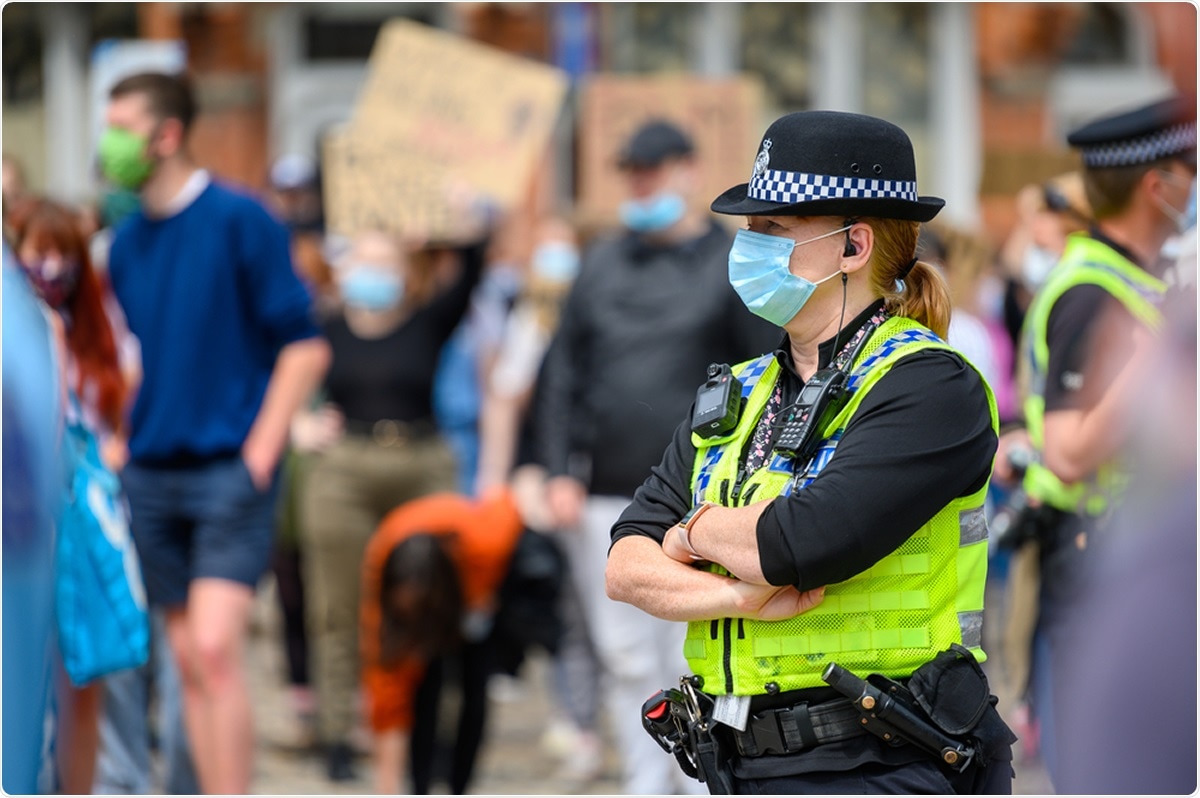The coronavirus disease (COVID-19), caused by the severe acute respiratory syndrome coronavirus 2 (SARS-CoV-2), placed many countries into lockdown during the peak of the pandemic. Now, many nations have re-opened businesses to boost their economies, which have been negatively impacted by the outbreak.
With many countries lifting restrictions, and some schools opening their face-to-face classes, health experts warned that a second wave could occur, with expected surges in new COVID-19 cases.
In the United Kingdom, health experts said that the country could face an exponentially growing death rate from COVID-19 within weeks unless urgent action is taken to control the spread of the virus. At present, the country has the highest official COVID-19 death toll in Europe and the fifth-largest across the globe.
The U.K. has more than 406,000 confirmed cases of COVID-19, with more than 41,900 deaths.

Image Credit: rightclickstudios / Shutterstock
A second wave of virus spread
A couple of days ago, the U.K. Prime Minister, Boris Johnson, said that Britain is entering a second wave of the coronavirus, as scientists expressed fears the death toll could spike again.
COVID-19 cases are skyrocketing by at least 4,000 cases per day in the U.K., according to week-old data. Further, new evidence says that hospital admissions double every eight days, and the testing system is being overwhelmed.
The U.K.'s chief medical officer, Chris Whitty, and the country's chief scientific adviser, Patrick Wallace, warned that if the country does not impose restrictions, the outbreak could reach as many as 50,000 new cases per day by mid-October.
The deaths are expected to increase to about 200 per day by mid-November, the current trend continues, the two top health officials said during a nationally televised press conference.
What they plan to do
With the increasing number of new cases, Johnson said he is prepared to impose nationwide measures to stem the spread of COVID-19. At present, about 13.5 million people in the country face local lockdowns after the government implemented measures in areas affected by the pandemic, particularly parts of the north-west, the Midlands, and Yorkshire.
"We are now seeing a second wave coming in. We've seen it in France, in Spain, across Europe. It's been inevitable, I'm afraid, that we would see it in this country," Johnson said.
"We want to keep the schools open – that's going to happen. And we'll try and keep all parts of the economy open, as far as we possibly can. I don't think anybody wants to go into a second lockdown," he added.
The U.K. first went into a strict lockdown in March, when the cases surged, and the death rate was increasing. In May, the restrictions were gradually lifted, allowing businesses to operate and people to go back to work. From there, the government reminded its constituents of measures to prevent infection, such as proper hand hygiene, social distancing, and the wearing of masks.
Earlier this month, Johnson imposed a "rule of six" in the country, wherein gatherings should include only a maximum of six people, whether these are held indoors or outdoors. Further, suggestions from experts said that a two-week lockdown might be imposed as a form of "circuit breaker" to curb the spread of the virus.
However, Matt Handcock, the country's health secretary, said that the restrictions this time will be different since many schools and workplaces will remain open.
Whitty, meanwhile, said that the challenge is to make sure the doubling time of cases does not stay at seven to eight days. Further, he added that the upcoming winter season would help the virus, wherein it is expected that more cases will be reported.
He added that people might be asked to work from home and reduce social contacts.
"We have to break unnecessary links between households because that is how this virus is transmitted," Whitty said.
"And this means reducing social contacts whether they are at work, and this is where we have enormous gratitude to all the businesses, for example, who have worked so hard to make their environments COVID-secure to reduce the risk, and also in social environments," he added.